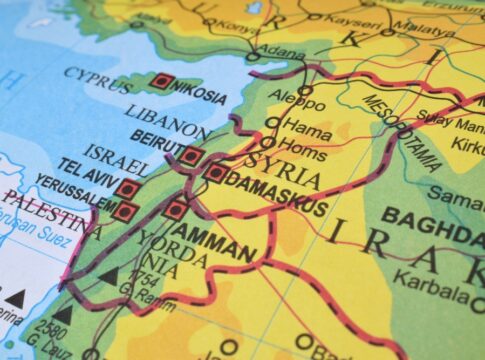Tulsi Gabbard’s nomination as Director of National Intelligence has sparked controversy due to her critique of U.S. foreign policy in Syria. Her stance challenges the mainstream narrative and highlights the impact on Christian communities. What are the main points of contention regarding Gabbard’s stance on Syria?
Gabbard’s Critique of U.S. Foreign Policy in Syria
Tulsi Gabbard has faced significant backlash for her criticism of U.S. foreign policy in Syria. Her nomination as Director of National Intelligence comes at a time when the fall of Bashar al-Assad’s regime has been celebrated by mainstream media as a triumph of freedom.
However, Gabbard has consistently warned against the chaos that could follow Assad’s ouster. She has advocated for a more cautious U.S. approach, opposing the consensus on Syria and highlighting the rise of jihadist groups like Hayat Tahrir Al-Sham (HTS).
NEW:
🇺🇲🇸🇾 Tulsi Gabbard the new U.S Director of National Intelligence furious that they installed ISIS and Al Qaeda terrorists in Syria just to take down Assad:
"Syria is now under Qaeda control of HTS Islamist Jihadists,we have leaders who cozy up to Islamist extremists,… pic.twitter.com/yCVFfQLaj0
— Megatron (@Megatron_ron) January 31, 2025
Senate Intelligence Committee Hearing and Controversies
During her Senate Intelligence Committee hearing, Gabbard faced intense scrutiny over her past actions and statements. The hearing focused heavily on her views regarding Edward Snowden, with Gabbard stating that Snowden “broke the law” but avoiding labeling him a traitor.
Gabbard also defended her 2017 trip to Syria and meeting with Bashar Assad, claiming it was beneficial for understanding and engagement. She addressed concerns about her comments on Russia, asserting her commitment to U.S. national security and denying any favoritism towards Russia.
"Those that oppose my nomination — are accusing me of being Trump’s puppet, Putin’s puppet, Assad’s puppet, a guru’s puppet, Modi’s puppet — what truly unsettles them is I refuse to be THEIR puppet." -Tulsi Gabbard pic.twitter.com/pEYofy9n0i
— Libs of TikTok (@libsoftiktok) January 30, 2025
Impact on Christian Communities and Broader Policy Implications
The discussion surrounding Gabbard’s nomination has brought attention to the impact of U.S. foreign policy on Christian communities in Syria. Critics argue that the Biden administration’s policies have led to the persecution of Christians and the empowerment of extremist groups.
Gabbard’s nomination represents a potential shift towards a more realistic and restrained U.S. foreign policy. Her stance challenges the failed bipartisan consensus on interventionism and emphasizes the need for leaders who question established policies.


